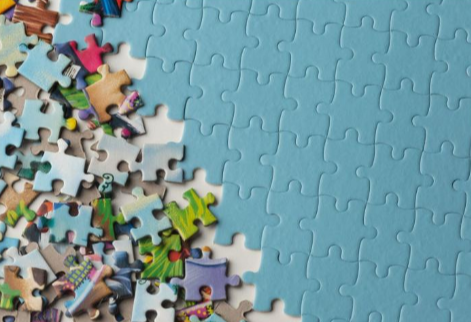Why Real-Life Puzzles Are More Fun Than Digital Ones

Digital puzzles dominate modern entertainment. Phone games, computer challenges, online brain teasers – unlimited options existing entirely on screens. Convenient? Absolutely. Actually satisfying? Questionable.
Something feels hollow about digital puzzle solving. Wins feel empty, progress feels meaningless, accomplishments disappear when apps close. Real-life puzzles engage bodies, minds, and social connections in ways pixels never quite capture. Calgary escape rooms prove physical puzzles create richer, more memorable experiences than digital alternatives ever achieve despite their convenience and accessibility.
1. Physical Objects Feel Different
Holding actual objects, manipulating real mechanisms, touching tangible puzzle pieces engages senses that screens cannot replicate. Weight, texture, physical feedback – these sensory elements make solving feel visceral and real.
Digital puzzles reduce everything to taps and swipes. Physical puzzles require examining objects from multiple angles, testing theories through actual manipulation, experiencing direct consequences of actions through immediate physical feedback.
This tactile engagement creates deeper satisfaction when solutions get discovered. Unlocking actual locks, opening real doors, triggering mechanical responses feels dramatically more rewarding than digital checkmarks or animated celebrations.
Read also: Harmonicode Sports and Its Future: Where Tech Meets Athletic Innovation
2. Spatial Awareness Actually Matters
Real rooms have three dimensions, hidden spaces, physical layouts affecting how clues relate. Searching physical environments requires spatial reasoning and awareness that flat screens cannot teach or test.
Finding hidden compartments, spotting clues in unexpected locations, understanding how room layout influences puzzle solutions – these challenges engage different brain areas than digital puzzle solving ever touches.
Physical movement through actual space makes solving feel like adventure rather than just mental exercise. Walking around, reaching, climbing, exploring creates embodied experiences digital puzzles fundamentally cannot replicate.
3. Collaboration Happens Naturally
Digital puzzles typically isolate players even in “multiplayer” formats. Physical escape rooms force genuine collaboration through shared physical space and limited time.
People naturally split tasks, call out observations, combine different perspectives in ways that feel organic and spontaneous. This real-time collaboration creates social dynamics that text chat or voice calls cannot match.
Watching teammates physically demonstrate discoveries or manually show found clues creates clearer communication than any digital interface manages. Pointing, showing, physically collaborating beats typing or talking through headsets every time.
4. Stakes Feel Higher Somehow
Digital puzzles allow infinite retries without consequence. Failed attempts cost nothing except time, making failures feel meaningless and success less satisfying.
Physical escape rooms create one-shot experiences with real time limits. Failure means actually losing, success requires genuine problem-solving under pressure. These stakes make everything matter more.
The inability to reload saves or restart from checkpoints forces committing to decisions and living with consequences. This creates tension and satisfaction absent from forgiving digital formats.
5. Memory Formation Works Differently
Screen time blurs together. Which phone game got played Tuesday versus Thursday? Who remembers or cares? Digital experiences fade quickly from memory despite hours spent engaged.
Physical experiences create stronger memories through multi-sensory engagement. The room’s appearance, teammates’ reactions, specific puzzle-solving moments – all stick in memory better than digital equivalents.
Years later, people remember specific escape room experiences in vivid detail while countless hours of digital puzzle solving vanish completely from memory like they never happened.
Conclusion
Digital puzzles offer convenience and unlimited content, but real-life challenges provide richer, more satisfying experiences engaging minds, bodies, and social connections simultaneously. Physical puzzles create lasting memories, genuine collaboration, and deeper satisfaction than screen-based alternatives ever manage, despite technological advantages.
The tactile, spatial, and social nature of real-world problem solving simply cannot be replicated digitally, making physical puzzle experiences valuable beyond their entertainment value alone.





